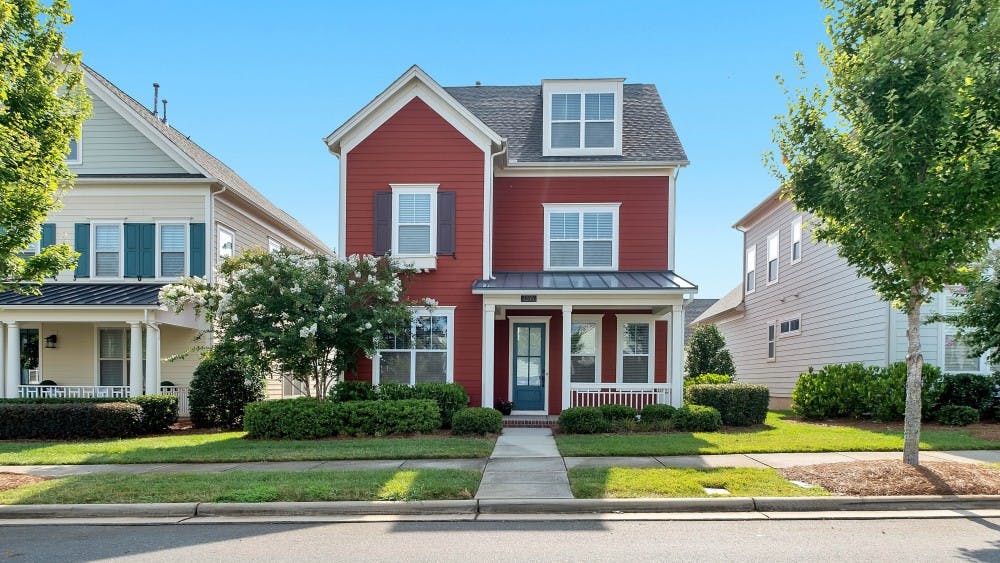
Interested in selling your home in Ontario? While this is an exciting time for any homeowner as they look to the next chapter, it can also come with many questions as most navigate this process for the first time. We’ve compiled a comprehensive list of what you will need to consider when selling a home within Canada, common mistakes to be avoided, and some tips to help make your transition as smooth as possible.
Getting Started with Selling your Home
Before you begin the process of selling your home, you estimate what price you are hoping to get for your property and assess if you will have about 3-5% of the value of the home to cover the costs. We will go through the breakdown of this percentage, but it is a good base point to consider before you have your home formally appraised.
Real Estate Commission
Most sellers will opt to hire a real estate agent to handle the marketing, staging, and selling of your home. You will most likely be responsible for paying your commission cost to your agent, as well as the buyer’s agent through the lawyer you choose to handle your transactions. The real estate commission fee in Ontario is usually 3.5-5%, with 2.5% going to the buyer’s agent and 1-2.5% going to the seller’s agent.
Interested in seeing an estimate on how much you will need to pay for the major costs associated with selling your home? Check out this calculator by province which will allow you to input the expected commission fee for your real estate agent, legal fees, and selling point of your home. While your final costs may vary, this should give you a good place to begin visualizing your closing cost breakdown.
Real Estate Lawyer
Once you secure an agent and begin the process of listing your home, it is time to consider the type of legal advice you are going to need to process the sale of the house. Your real estate lawyer will provide a variety of essential services, such as verifying any mortgages or lines of credit in a letter of direction and closing the sale of your house with the transfer of funds. Your real estate lawyer will work with the buyer’s lawyer and other relevant parties such as your bank to finalize the selling process.
The cost of these legal services can vary greatly, depending on a number of factors specific to the transaction. With traditional methods, these fees can also change significantly from the time of the first quote to the actual closing date. Doormat provides a guided process to close on a property with these expenses given upfront, so you know exactly how much closing will cost beforehand.
Tax on Real Estate Commissions
Once you finalize the sale of your home, you will now need to pay the associated taxes with the sale. In Ontario, real estate commissions are subject to the sales taxes at the provincial rate of 13% of the commission fee.
If the house you are selling is not your primary residence, you will need to pay capital gains tax. This will differ depending on the listing price of your home, but 50% of the profit becomes taxable under Ontario law. Consult a tax professional to make sure you are taking advantage of all opportunities to minimize what you owe the government for your home sale.
Tip: If you’re selling your home and have already paid property taxes for the year, you may actually get a rebate at closing. The buyer should reimburse you for the portion of taxes already paid that apply after the closing date. If you choose to use Doormat, this rebate will be applied automatically and adjust your closing costs accordingly.
Staging your Home
Home repairs can pop up after the home has been inspected and could potentially set you back thousands of dollars if you are not prepared. It is a good idea to check out what you can around the property before the formal inspection is completed, in order to help budget for things that could arise.
Staging your home is often encouraged by real estate agents in order to make the house look more appealing. The cost ranges depending on the size of the house, if you are renting furniture, etc. Interested in checking out some home staging tips to get started? Check out this article from TV’s Love It or List It co-hosts, Hilary Farr and David Visentin, and home stager Jillian Summer.
Moving Costs
One of the final steps in the selling process is to move out of the house. This cost will vary person by person, but remember to consider if you will need to hire a moving service, buy boxes and supplies for packing, and the time of year when you move when thinking of hiring a moving truck or trailer. You can reduce costs by doing much of the moving yourself and relying on family and friends, but still plan to budget at least $200 in packing expenses.
Remaining Home Expenses
If you have a mortgage and plan to pay it off with the proceeds of your sale before the term ends, you may be subject to prepayment penalties. Additionally, banks will charge a mortgage discharge fee for discharging the mortgage, which can range anywhere from $250 to $500.
Tip: If you are transferring your mortgage to a new property, you can avoid some of the fees mentioned above. Check with your bank or real estate lawyer!
You will need to close out any bills and property taxes associated with your home in closing adjustments. Most utility companies will have rates to pay remaining balances before your monthly billing cycle once the transfer of sale has been confirmed. Until then, you will be stuck paying the bills for a house you may not be living in, so make sure to consider past bills for water and electric estimates! Your real estate lawyer will be able to assist you with the property taxes.
Reducing the Costs of Selling your House
One way to potentially save some money in the selling process is to go around a real estate agent and list the house as For Sale by Owner (FSBO). This would save you the seller’s agent commission fee, but this option does come with a set of risks. It is advisable to have some experience with real estate transactions in order to understand the pricing of your home, how to work with buyer’s agents, and properly staging and marketing your home.
One option if you choose FSBO would be to hire an appraiser, starting at around $400, to put the value on your home. You could also consider hiring a low-cost or flat-fee realtor. This is an option mid-way between a full-service realtor and selling on your own. A flat-rate realtor charges a fixed, predetermined fee regardless of the final sale price. But means you have to do more work on your own, than you would with a realtor.
Those are the fees to be aware of when selling your home. As mentioned before, Doormat will likely save you money on some of these expenses, while providing you with dependable legal services communicated clearly throughout the transaction. Get in touch with us today to learn how we can provide the best possible way to close on your property!






